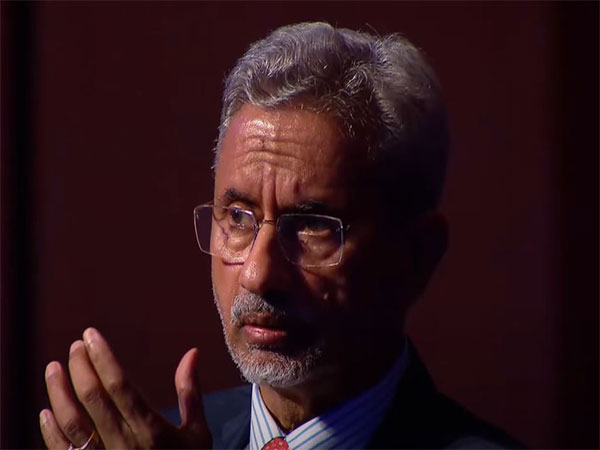Canberra [Australia]: External Affairs Minister S Jaishankar said that the “disengagement chapter” between India and China over the troop deployment issue near the Depsang and Demchok areas in Eastern Ladakh along the Line of Actual Control was done and only the de-escalation part remained to be addressed by the two nations.
Speaking at the inaugural session of ‘Raisina Down Under’ in Canberra, Australia, on Tuesday, the EAM addressed the ongoing complexities in the relationship between India and China and reiterated the disengagement agreement between the two countries on October 21, which saw a successful resolution of issues along the LAC.
Jaishankar said that the issue had a profound effect on India-China relations, as peace and tranquillity along the LAC had been seen as a prerequisite for broader bilateral cooperation. He noted that the disruptions had led to the scaling back of bilateral ties between the two nations.
“The disengagement chapter has been done… the part that awaits us is de-escalation, which is the build-up of forces along LAC… During the period, our relationship was also profoundly affected because it has always been an assumption on our side that peace and tranquillity were a prerequisite for the development of our ties and since peace and tranquillity were disrupted, our relation with China has cut back in different ways,” he said.
Jaishankar remarked that the priority since the summer of 2020 had been to separate Indian and Chinese troops in the region and that the new agreements primarily addressed two crucial areas that had to do with patrolling in those regions, which were also resolved.
“What we negotiated on October 21 was the last set of what we call disengagement agreements, which essentially means after the summer of 2020, Chinese and Indian troops have been forward deployed along the Line of Actual Control at distances that were extremely concerning and the priority has been finding the ways to separate the troops… having them go back to their normal operating bases as far as possible and also resuming patrol in the way it used to be done in 2020. The last agreement primarily related to two areas that had to do with patrolling and where there were obstructions to the patrolling that were resolved… That’s the part that we got done,” he said.
The EAM noted that India-China issues cannot be resolved at once and that both nations’ Foreign Ministers and National Security Advisors would meet together to discuss the ways for improving ties as agreed by Prime Minister Narendra Modi and Chinese President Xi Jinping following a “formal bilateral” meeting on the sidelines of the BRICS summit in October.
“Everything is not going to happen at once but at the formal bilateral meeting between Prime Minister Modi and Chinese President Xi Jinping, what was agreed was that the Foreign Minister and National Security Advisor would meet their counterparts and find ways to discuss how we normalise the relationship”
Jaishankar acknowledged the need for a constructive approach to the bilateral relationship, noting that the future of India-China relations would require “a lot of thinking and management” while highlighting the complexities of managing this relation that includes disputed border areas and increasing intersecting global ambitions.
“How do we actually see this relation is that…it is quite a challenge because you have two most populous countries in the world, both of whom have been rising, rising in a broadly parallel time frame…how do you establish an equilibrium between yourselves in the border areas, which happens to be disputed, as well as establish a working relationship on other issues… how do your new expressions of influence and activities impact on the relationship in a way and come into contact with each other, these are really a complex set of issues and do require a lot of thinking and management,” he said.


